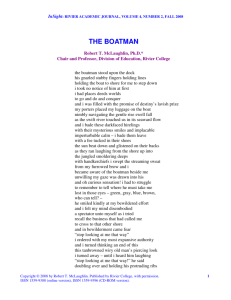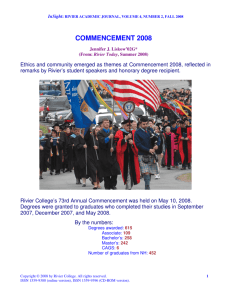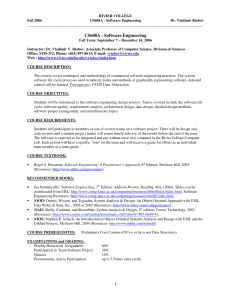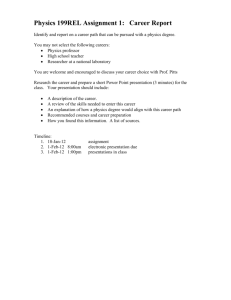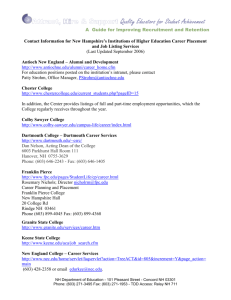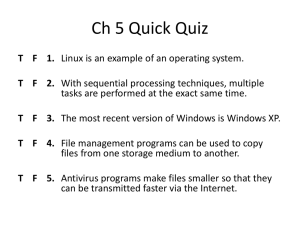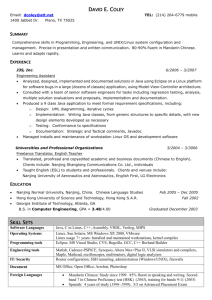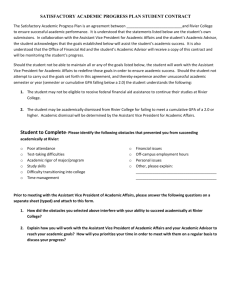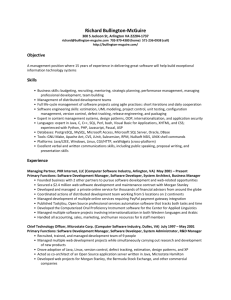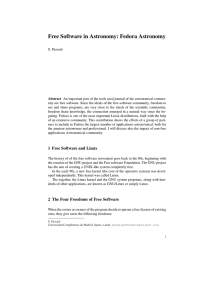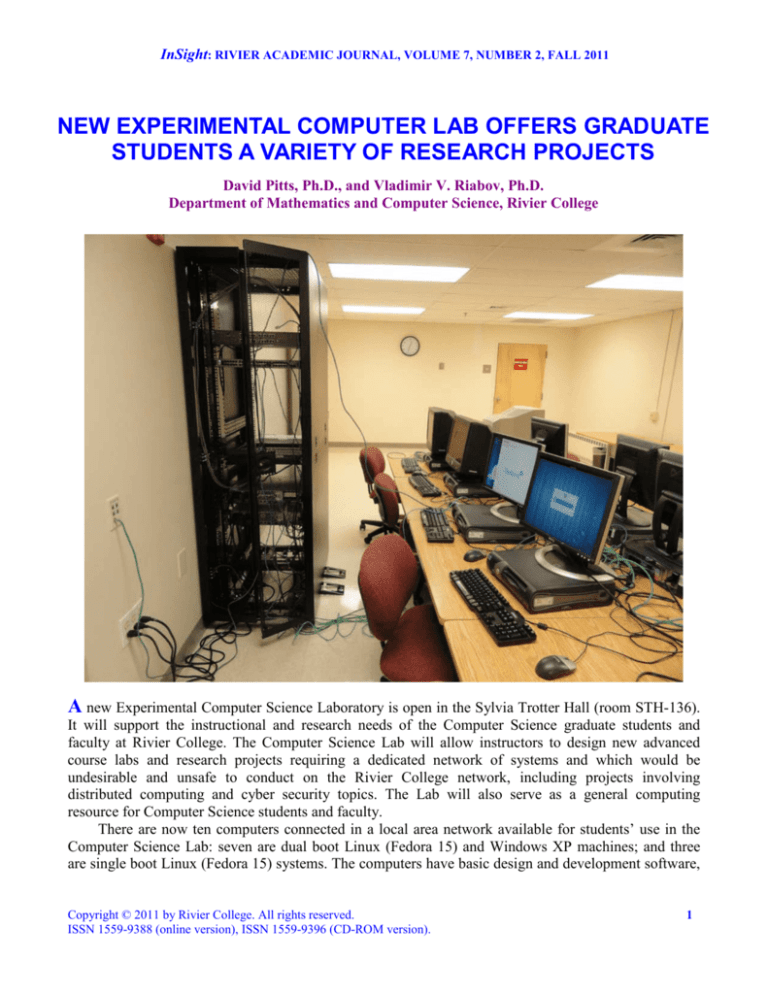
InSight: RIVIER ACADEMIC JOURNAL, VOLUME 7, NUMBER 2, FALL 2011
NEW EXPERIMENTAL COMPUTER LAB OFFERS GRADUATE
STUDENTS A VARIETY OF RESEARCH PROJECTS
David Pitts, Ph.D., and Vladimir V. Riabov, Ph.D.
Department of Mathematics and Computer Science, Rivier College
A new Experimental Computer Science Laboratory is open in the Sylvia Trotter Hall (room STH-136).
It will support the instructional and research needs of the Computer Science graduate students and
faculty at Rivier College. The Computer Science Lab will allow instructors to design new advanced
course labs and research projects requiring a dedicated network of systems and which would be
undesirable and unsafe to conduct on the Rivier College network, including projects involving
distributed computing and cyber security topics. The Lab will also serve as a general computing
resource for Computer Science students and faculty.
There are now ten computers connected in a local area network available for students’ use in the
Computer Science Lab: seven are dual boot Linux (Fedora 15) and Windows XP machines; and three
are single boot Linux (Fedora 15) systems. The computers have basic design and development software,
Copyright © 2011 by Rivier College. All rights reserved.
ISSN 1559-9388 (online version), ISSN 1559-9396 (CD-ROM version).
1
NEW EXPERIMENTAL COMPUTER LAB OFFERS GRADUATE STUDENTS
A VARIETY OF RESEARCH PROJECTS
including compilers, database management systems, web servers and associated development tools. The
systems are connected in a local area network through a Nortel 5510 switch.
One of the servers in Lab equipment is running Linux Fedora 15 and is acting as the DNS server
for the network. The machines in the network have Internet access, but filtered through an IT department
router to prevent unauthorized access to the equipment. Within the local area network, machines have
complete network access to each other and can be configured to bring up local web servers as needed by
class activities.
For the Windows systems, the Windows Server will be installed on the remaining server machines
using media supplied by IT. The best approach for the Linux systems is currently explored.
Dr. David Pitts, an Assistant Professor of Computer Science, has already used the Experimental
Computer Science Lab in his courses in Fall-2011 semester. His students successfully used the Lab
computer systems in CS690AH1 Distributed Computing class meetings. They experimented with the
development of web services using SOAP and WSDL technologies, culminating in the development of a
small application using a web service supported by the National Weather Service. Students also
performed a lab using Java’s remote method invocation mechanism. This example highlights a major
benefit of having this isolated lab facility: the software they used in the Distributed System course
activities was identified and discussed during one class meeting; by the next class meeting, Dr. Pitts had
downloaded the software, installed it and had it ready for the students to use. He has also used the Lab
systems in his CS586A High Octane Java course for hands on activities in Java network programming.
The Lab design, system settings, and maintenance could not be successfully implemented without
the outstanding support of Sr. Therese Larochelle, p.m., Ph.D., Vice-President for Academic Affairs; the
Office of Information Technologies (Bill Schleifer, Marie McMullen, David Bedard, and Sr. Martha
Villeneuve), and the Division of Sciences (Dr. Paul Cunningham and Jackie Madison). ■
2

